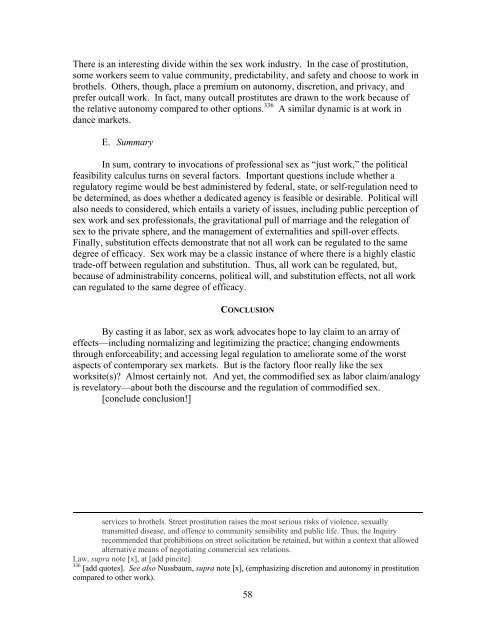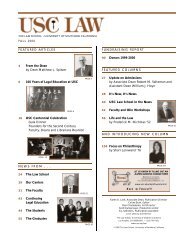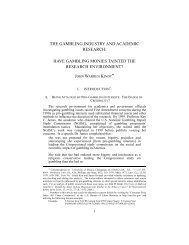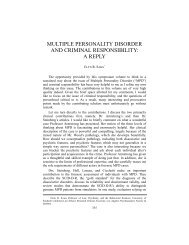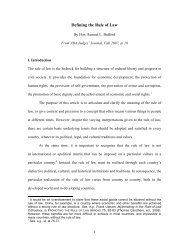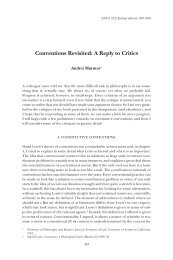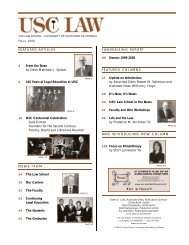1 Regulating Sex Work Adrienne D. Davis VERY ROUGH DRAFT ...
1 Regulating Sex Work Adrienne D. Davis VERY ROUGH DRAFT ...
1 Regulating Sex Work Adrienne D. Davis VERY ROUGH DRAFT ...
Create successful ePaper yourself
Turn your PDF publications into a flip-book with our unique Google optimized e-Paper software.
There is an interesting divide within the sex work industry. In the case of prostitution,<br />
some workers seem to value community, predictability, and safety and choose to work in<br />
brothels. Others, though, place a premium on autonomy, discretion, and privacy, and<br />
prefer outcall work. In fact, many outcall prostitutes are drawn to the work because of<br />
the relative autonomy compared to other options. 336 A similar dynamic is at work in<br />
dance markets.<br />
E. Summary<br />
In sum, contrary to invocations of professional sex as “just work,” the political<br />
feasibility calculus turns on several factors. Important questions include whether a<br />
regulatory regime would be best administered by federal, state, or self-regulation need to<br />
be determined, as does whether a dedicated agency is feasible or desirable. Political will<br />
also needs to considered, which entails a variety of issues, including public perception of<br />
sex work and sex professionals, the gravitational pull of marriage and the relegation of<br />
sex to the private sphere, and the management of externalities and spill-over effects.<br />
Finally, substitution effects demonstrate that not all work can be regulated to the same<br />
degree of efficacy. <strong>Sex</strong> work may be a classic instance of where there is a highly elastic<br />
trade-off between regulation and substitution. Thus, all work can be regulated, but,<br />
because of administrability concerns, political will, and substitution effects, not all work<br />
can regulated to the same degree of efficacy.<br />
CONCLUSION<br />
By casting it as labor, sex as work advocates hope to lay claim to an array of<br />
effects—including normalizing and legitimizing the practice; changing endowments<br />
through enforceability; and accessing legal regulation to ameliorate some of the worst<br />
aspects of contemporary sex markets. But is the factory floor really like the sex<br />
worksite(s)? Almost certainly not. And yet, the commodified sex as labor claim/analogy<br />
is revelatory—about both the discourse and the regulation of commodified sex.<br />
[conclude conclusion!]<br />
services to brothels. Street prostitution raises the most serious risks of violence, sexually<br />
transmitted disease, and offence to community sensibility and public life. Thus, the Inquiry<br />
recommended that prohibitions on street solicitation be retained, but within a context that allowed<br />
alternative means of negotiating commercial sex relations.<br />
Law, supra note [x], at [add pincite].<br />
336<br />
[add quotes]. See also Nussbaum, supra note [x], (emphasizing discretion and autonomy in prostitution<br />
compared to other work).<br />
58


